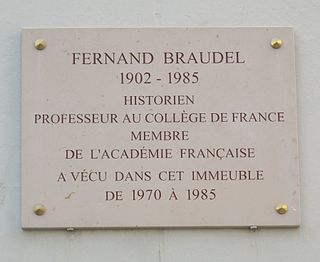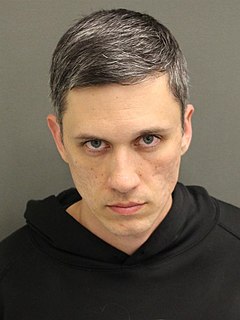A Quote by Henry David Thoreau
While the Republic has already acquired a history world-wide, America is still unsettled and unexplored. Like the English in New Holland, we live only on the shores of a continent even yet, and hardly know where the rivers come from which float our navy.
Related Quotes
A man builds a house in England with the expectation of living in it and leaving it to his children; while we shed our houses in America as easily as a snail does his shell. We live a while in Boston, and then a while in New York, and then, perhaps, turn up at Cincinnati. Scarcely any body with us is living where they expect to live and die. The man that dies in the house he was born in is a wonder. There is something pleasant in the permanence and repose of the English family estate, which we, in America, know very little of.
But the idea of science and systematic knowledge is wanting to our whole instruction alike, and not only to that of our business class ... In nothing do England and the Continent at the present moment more strikingly differ than in the prominence which is now given to the idea of science there, and the neglect in which this idea still lies here; a neglect so great that we hardly even know the use of the word science in its strict sense, and only employ it in a secondary and incorrect sense.
It should be clear by now that a nation can be no stronger abroad than she is at home. Only an America which practices what it preaches about equal rights and social justice will be respected by those whose choice affects our future. Only an America which has fully educated its citizens is fully capable of tackling the complex problems and perceiving the hidden dangers of the world in which we live. And only an America which is growing and prospering economically can sustain the worldwide defenses of freedom, while demonstrating to all concerned the opportunities of our system and society.
Malcolm Bradbury made the point, and I don't know whether it's a valid one or not, that the real English at the moment is not the English spoken in England or in America or even in Canada or Australia or New Zealand. The real English is the English which is a second language, so that it's rather like Latin in the days of the Roman Empire when people had their own languages, but had Latin in order to communicate.
Events are the ephemera of history; they pass across its stage like fireflies, hardly glimpsed before they settle back into darkness and as often as not into oblivion. Every event, however brief, has to be sure a contribution to make, lights up some dark corner or even some wide vista of history. Nor is it only political history which benefits most, for every historical landscape - political, economic, social, even geographical - is illumined by the intermittent flare of the event.
The fact that refugees traveled through six other countries, like former Yugoslavia, Macedonia, Hungary, Austria, Switzerland, France, Germany, Holland, is because they like our social benefits. They like our welfare state. They know which country to pick. They're not going to stay in Hungary or in Estonia. They come to Germany, to Holland. And people sense that those are not the real refugees. And our government has spent billions of euros on them, and the Dutch people know.
We know from our recent history that English did not come to replace U.S. Indian languages merely because English sounded musical to Indians' ears. Instead, the replacement entailed English-speaking immigrants' killing most Indians by war, murder, and introduced diseases, and the surviving Indians' being pressured into adopting English, the new majority language.
Whether we live by the seaside, or by the lakes and rivers, or on the prarie, it concerns us to attend to the nature of fishes, since they are not phenomena confined to certain localities only, but forms and phases of the life in nature universally dispersed. The countless shoals which annually coast the shores of Europe and America are not so interesting to the student of nature as the more fertile law itselffrom which it results that they may be found in water in so many places, in greater or lesser numbers.
She says, "But in contentment I still feel The need for imperishable bliss." Death is the mother of beauty; hence from her, Alone, shall come fulfillment to our dreams And our desires. Is there no change of death in paradise? Does ripe fruit never fall? or do the boughs Hang always heavy in that perfect sky, Unchanging, yet so like our perishing earth, With rivers like our own that seek for seas They never find, the same receding shores That never touch with inarticulate pang?
People look like rivers very much: water is everywhere the same, but the rivers are narrow, fast, wide, pure, cold, muddy and warm. The people are the same. They have the rudiment of every human habit in them and they behave according to them. Sometimes they even do not look like themselves, but they still stay whatever they are.

































